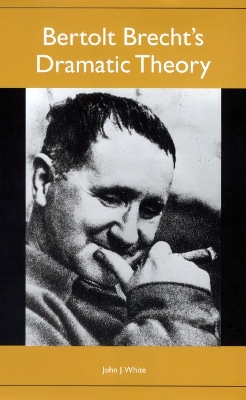As an integral part of his work as a political playwright and dramaturge, Bertolt Brecht concerned himself extensively with the theory of drama. He was convinced that the Aristotelian ideal of audience catharsis through identification with a hero and the resultant experience of terror and pity worked against his goal of bettering society. He did not want his audiences to feel, but to think, and his main theoretical thrusts -- "Verfremdungseffekte" (de-familiarization devices) and epic theater, among others -- were conceived in pursuit of this goal. This is the first detailed study in English of Brecht's writings on the theater to take account of works first made available in the recent German edition of his collected works. It offers in-depth analyses of Brecht's canonical essays on the theater from 1930 to the late 1940s and early GDR years. Close readings of the individual essays are supplemented by surveys of the changing connotations within Brecht's dramaturgical oeuvre of key theoretical terms, including epic and anti-Aristotelian theater, de-familiarization, historicization, and dialectical theater. Brecht's distinct contribution to the theorizing of acting and audience response is examined in detail, and each theoretical essay and concept is placed in the context of the aesthetic debates of the time, subjected to a critical assessment, and consideredin light of subsequent scholarly thinking. In many cases, the playwright's theoretical discourse is shown to employ methods of "epic" presentation and techniques of de-familiarization that are corollaries of the dramatic techniques for which his plays are justly famous.
John J. White is Emeritus Professor of German and Comparative Literature at King's College London.
- ISBN10 1571130764
- ISBN13 9781571130761
- Publish Date 1 December 2004 (first published 1 January 2004)
- Publish Status Inactive
- Out of Print 15 March 2021
- Publish Country US
- Publisher Boydell & Brewer Ltd
- Imprint Camden House Inc
- Format Hardcover
- Pages 358
- Language English
